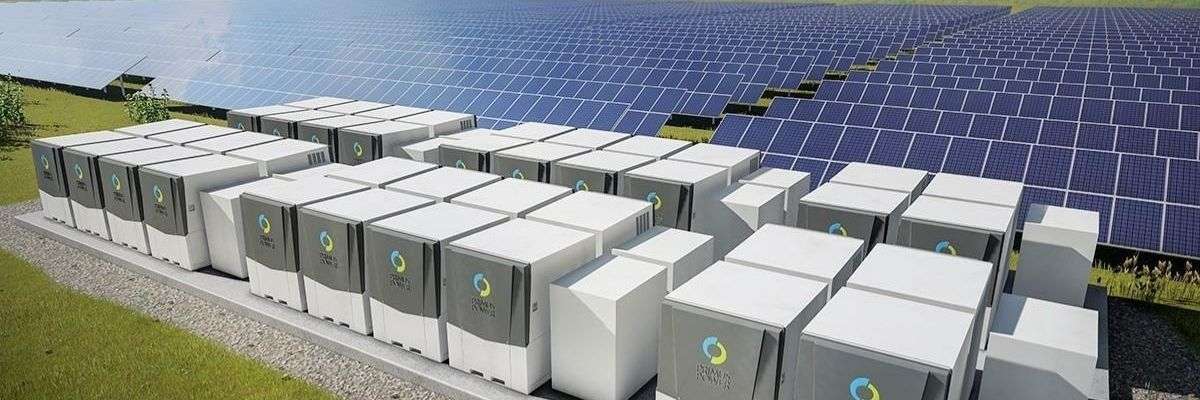The term ‘energy storage tolling agreement’ refers to a long-term PPA-type structure. In this article we will explore the term and its origins further, as well as providing links to two sample battery & energy storage tolling agreements—an Energy Storage Facility Agreement from Ontario ISO and an Energy Storage System Power Purchase Tolling Agreement from San Diego Gas & Electric Company.
What is an Energy Storage Tolling Agreement?
The idea of an energy storage tolling agreement is derived from the concept of a gas tolling agreement (which is defined further down in this article). In an energy storage tolling agreement, the seller develops, owns, and operates the energy storage system, while the offtaker supplies charging energy. Therefore, the energy in the system belongs to the offtaker. As part of an energy storage tolling agreement, the seller is usually required to arrange for separate station service in order to not use the offtaker’s electricity. Charging and dispatch operations may be controlled by the offtaker, or managed by the seller, depending on the agreed-upon principles of the contract.
How Does an Energy Storage Tolling Agreement Work?
Under an energy storage tolling agreement, the developer of the energy storage system is responsible for obtaining site control, permits, interconnection rights, equipment, and construction contracts, as well as achieving agreed-upon milestones such as a target commercial operation date and a guaranteed commercial operation date. The buyer—often the utility company—pays for the electricity used to charge the energy storage system, and receives the right to charge/discharge the system for energy and ancillary services. The storage provider receives a capacity payment—which is adjusted for the battery storage system’s availability and round-trip efficiency—as well as a variable O&M payment for energy dispatched by the system.
Generally, the buyer will insist on the right to dispatch the system to provide ancillary services, such as frequency regulation, without any additional compensation to the seller beyond the standard capacity and variable O&M payments. As the energy stored in the battery belongs to the buyer, energy storage tolling agreements will often prohibit or restrict the developer’s use of the storage system for station service. The inclusion of this condition requires that the developer enters into a retail service contract for the system’s non-storage load. As noted previously, the basic framework of an energy storage tolling agreement is derived from gas tolling agreements, and parallels can be drawn between the two. For example, “round-trip efficiency” is analogous to “heat rate”, and “availability” generally pertains to the same function under both types of agreement.
Energy Storage Tolling Agreements: Payment and Performance
In an energy storage tolling agreement, there are a number of potential payments and measures of performance. Some of these variables include:
- Payments
- Capacity Payment
- Fixed O&M/Variable O&M
- Performance
- Availability Adjustment
- Capacity Test
- Round-trip Efficiency Adjustment
Sample Battery & Energy Storage Tolling Agreements
Below you can download two sample battery & energy storage tolling agreements—an Energy Storage Facility Agreement from Ontario ISO and an Energy Storage System Power Purchase Tolling Agreement from San Diego Gas & Electric Company. Click the links below to read and download the sample agreements.
What is a Tolling Agreement?
A tolling agreement is a contract which allows for the rental of a power plant from its owners. Tolling agreements give the renter the ability to convert one physical commodity (fuel/gas) into another commodity (electricity).
What is a Power Purchase Tolling Agreement?
A power purchase tolling agreement is a contract for the purchase of power wherein the seller receives a periodic payment from the utility for capacity for the duration of the contract term. In this scenario, the utility is responsible for procurement and delivery of energy to the seller, as well as scheduling of the generating units under contract.
If you’re interested in your own battery storage system, reach out to YSG Solar today. YSG has been operating in the renewable energy sector for over a decade and has years of experience working with energy storage systems. Even if you haven’t installed solar with YSG, we can still assist you with a battery storage project. Call the office at 212.389.9215 or send us an email to learn how it all works.
YSG Solar is a project development company responsible for commoditizing energy infrastructure projects. We work with long-term owners and operators to provide clean energy assets with stable, predictable cash flows. YSG's market focus is distributed generation and utility-scale projects located within North America.
Sources:
https://energyagreements.com/storage-ppas/
https://www.oreilly.com/library/view/energy-trading/9781259835391/ch4b.html
https://www.publicadvocates.cpuc.ca.gov/general.aspx?id=3071
https://energystorage.org/wp/wp-content/uploads/2020/12/Module-3-Combined-Slides-FINAL.pdf
https://www.klgates.com/epubs/Energy-Storage-Handbook-Vol2/offline/download.pdf
Featured Photo by Sungrow EMEA on Unsplash.

